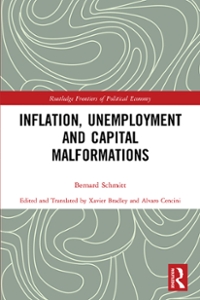Question
Read the following article from the UK Times newspaper on March 30, 2016 and answer the questions at the end of the passage. Steel's Steep
Read the following article from the UK Times newspaper on March 30, 2016 and answer the questions at the end of the passage.
Steel's Steep Decline - The global supply glut has forced Tata to sell its UK operations
The death knell of the British steel industry was sounded last night in Mumbai. Tata's decision to close down in Port Talbot and indeed withdraw from steel making in the United Kingdom will be regarded as a body blow by thousands of workers. It reflects the striking imbalance in our national recovery. While the economy may be growing, manufacturing industries are struggling. Some, like steel, are in crisis. About 5,000 steel workers have lost their jobs in the past 12 months. Reports last night suggested that many tens of thousands of jobs across Britain could now be at risk.
These are a heavy blow for South Wales and above all for the workers themselves. Yet there is little the government can do to mitigate it because the problems of the steel industry are not specifically British. They are global and they are structural. There is a strong case for government industrial policy but the cause of "Save our Steel" is doomed to failure. It is not open to Britain to preserve unilaterally a declining industry by diverting public funds from more productive uses or by imposing curbs on imported steel.
Tata is Europe's second-largest steel producer. The Indian group, which also owns Jaguar Land Rover, has pumped 1 billion into Port Talbot and is now believed to be losing 300 million a year on steel. The board convening last night examined a turnaround plan but according to early reports opted to cut its losses.
Port Talbot is Britain's biggest steel plant, with a head count of about 4,000, and it is not alone in its plight. In the past few months Tata has had to cut more than 1,200 jobs in Scunthorpe and Lanarkshire. The proximate cause is a collapse in commodity prices generally and steel in particular. China has been the engine of global growth since the financial crisis but is now slowing sharply. It is no longer the huge consumer of commodities that it was but it is a vast producer; it accounts for more steel output than all other countries combined.
European governments are concerned that cheap Chinese steel imports, sold at below the cost of production, have been driving out local producers. Last month the EU imposed anti-dumping duties on some steel imports from China and Russia. British steelworkers and producers believe these curbs do not go far enough. That view is understandable but mistaken. There are always costs in a policy of trade protectionism, paid for by consumers with higher prices and by the wider economy. This is due to the diversion of scarce resources from more competitive industries.
The original article can be accessed at:Tata steel article
Questions
1. Should the UK government rescue Tata and keep steel manufacturing in the UK?
2. Discuss the arguments for and against the EU / UK imposing anti dumping tariffs on Chinese steel?
Step by Step Solution
There are 3 Steps involved in it
Step: 1

Get Instant Access to Expert-Tailored Solutions
See step-by-step solutions with expert insights and AI powered tools for academic success
Step: 2

Step: 3

Ace Your Homework with AI
Get the answers you need in no time with our AI-driven, step-by-step assistance
Get Started


